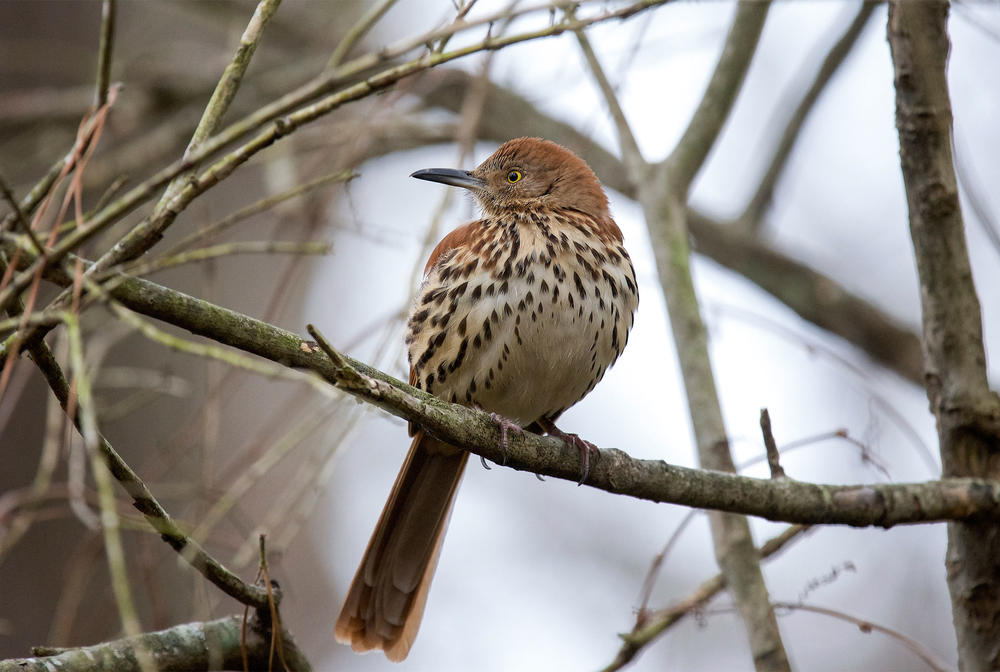Section Branding
Header Content
Rising Temperatures Would Endanger Brown Thrasher Populations
Primary Content
If summer temperatures increase by 2 degrees Celsius, or 3.6 degrees Fahrenheit, brown thrashers would lose nearly 75% of their range in Georgia.
Brown thrashers, the Georgia state bird, are among eight bird species that would be highly endangered due to climate changes, the National Audubon Society reported. Changes in climate would limit brown thrashers' resources to food and shelter and would displace them to more suitable environments.
Climate changes such as urbanization, heat and rising sea levels pose the greatest risks to birds in the state.
Brooke Bateman, the senior climate scientist at the National Audubon Society, said brown thrashers aren't the only species at risk.
"Birds are important indicator species because if an ecosystem is broken for birds, it is or soon will be for people, too," Bateman said.
Georgia residents have already been affected by climate changes. Severe weather and storms such as Hurricane Michael damaged crops, homes and other properties.
RELATED: A Year After Hurricane Michael, Georgia Officials and Farmers Discuss Lingering Effects
To lower the risk of bird endangerment and temperature increases, the vice president of climate at the National Audubon Society, Renee Stone, said resources are available.
"We already know what we need to do to reduce global warming, and we already have a lot of the tools we need to take those steps," Stone said. "Now, what we need are more people committed to making sure those solutions are put into practice."
Those solutions include reforestation, reducing carbon emissions and using alternative energy. Atlanta also aims to transition to 100% clean energy consumption by 2035.
David O'Neill, chief conservation officer at the National Audubon Society, said everyone could benefit from making conservation efforts.
"If we work with landowners to invest in grazing and forest management practices, we can sequester carbon, provide lush habitat for birds and support the economic needs of ranchers and forest owners," O'Neill said. "It's a win-win."


